
Vancouver Island, nestled off the southwest coast of British Columbia, Canada, is a captivating destination renowned for its stunning natural beauty, diverse ecosystems, and vibrant communities.
Stretching approximately 460 kilometers in length and 80 kilometers in width, Vancouver Island offers a rich tapestry of landscapes, ranging from lush rainforests and rugged coastlines to picturesque beaches and majestic mountains.
Before embarking on a journey to Vancouver Island, it is essential for visitors to acquaint themselves with key information about the region.
Understanding the island’s geography, climate, transportation options, cultural heritage, and recreational opportunities can greatly enhance the overall travel experience.
By being well-informed, travelers can make informed decisions, plan their itineraries more effectively, and fully immerse themselves in the wonders that Vancouver Island has to offer.
This article aims to provide valuable insights and practical tips to help visitors make the most of their exploration of this captivating island destination.
Now, let’s take a closer look at the 12 things you shouold know before visiting Vancouver island:
1. Geography and Location
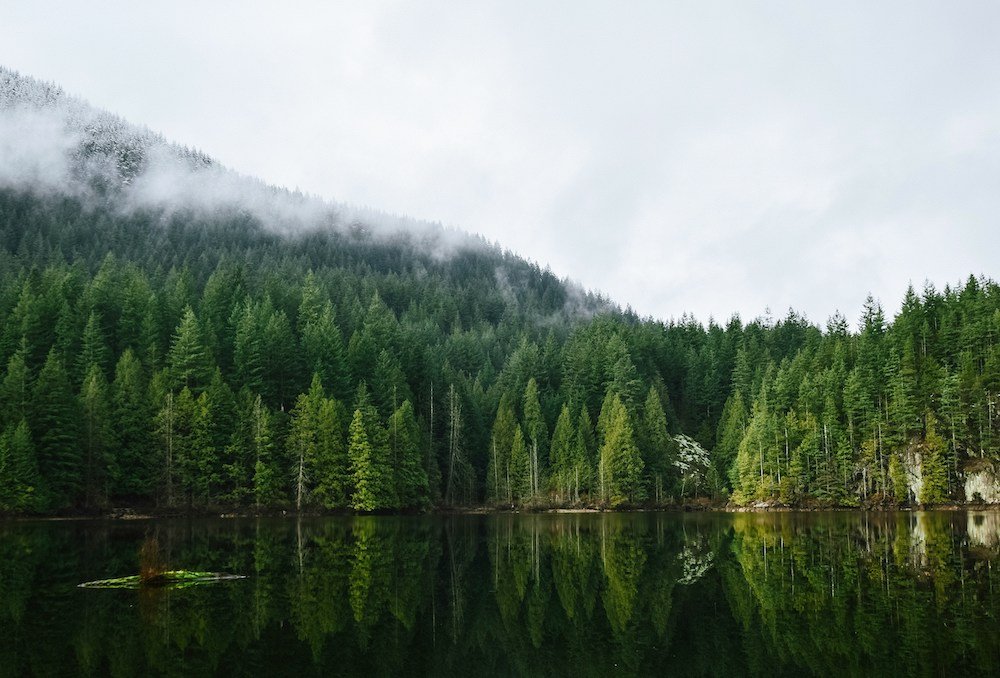
Vancouver Island, the largest island on the west coast of North America, boasts an expansive area of approximately 32,134 square kilometers.
Situated off the southwestern coast of British Columbia, Canada, it is bordered by the Pacific Ocean to the west and the Strait of Georgia to the east.
Vancouver Island is surrounded by several significant bodies of water, including the Strait of Juan de Fuca to the south, which separates it from the Olympic Peninsula in Washington State, USA.
To the east lies the Salish Sea, encompassing the Strait of Georgia, Haro Strait, and Puget Sound.
The island’s proximity to the mainland offers breathtaking views of the Coast Mountains and provides convenient access to neighboring cities such as Vancouver and Victoria via ferry services and bridges.
This strategic location not only enhances the island’s natural beauty but also facilitates seamless travel and exploration for visitors.
2. Climate and Weather Patterns
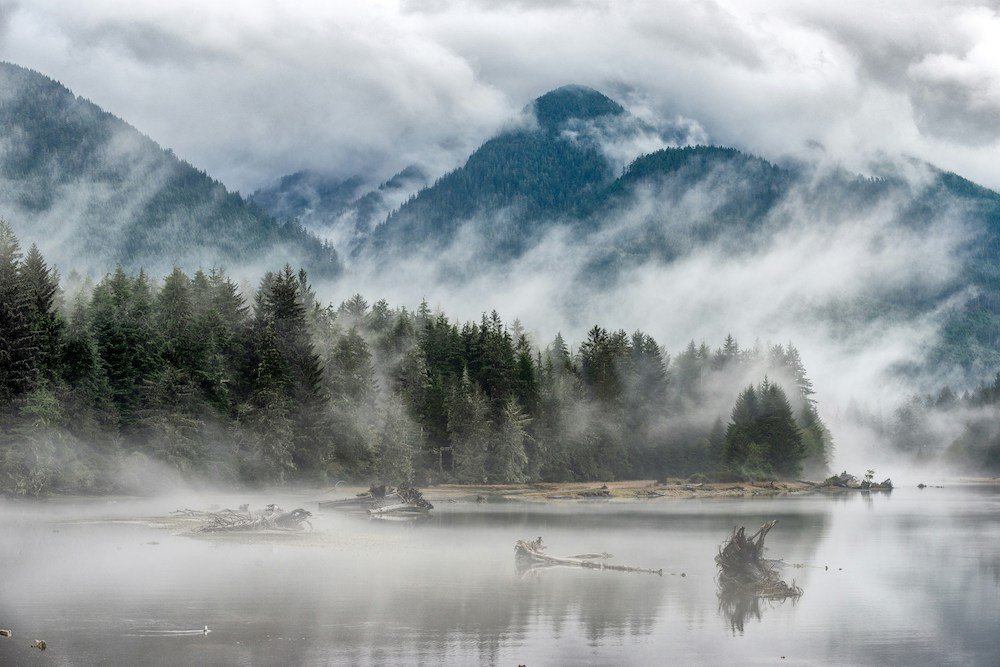
Vancouver Island enjoys a temperate maritime climate characterized by mild winters, pleasant summers, and ample rainfall throughout the year.
This maritime influence, attributed to its proximity to the Pacific Ocean, moderates temperature extremes and contributes to the island’s lush greenery and diverse ecosystems.
B. Seasonal Variations and Typical Weather Patterns
- Spring: Springtime on Vancouver Island heralds the awakening of nature, with blossoming flowers, budding trees, and longer daylight hours. Average temperatures range from 5°C to 15°C (41°F to 59°F), making it an ideal time for outdoor activities such as hiking, wildlife spotting, and exploring the island’s parks and gardens.
- Summer: Summer months bring warm, sunny days to Vancouver Island, with temperatures ranging from 15°C to 25°C (59°F to 77°F) on average. Visitors flock to the island’s beaches, lakes, and coastal communities to bask in the sunshine, partake in water sports, and soak up the laid-back island ambiance.
- Fall: Autumn paints Vancouver Island in a kaleidoscope of colors as leaves change hues and harvest festivals abound. Temperatures gradually cool, averaging between 5°C to 15°C (41°F to 59°F). Fall is an excellent time for scenic drives, whale watching tours, and sampling seasonal culinary delights.
- Winter: Winters on Vancouver Island are mild compared to other parts of Canada, with temperatures hovering around 0°C to 8°C (32°F to 46°F). While snowfall is rare at lower elevations, mountainous regions such as Strathcona Provincial Park may receive substantial snow accumulation, attracting winter sports enthusiasts for skiing, snowboarding, and snowshoeing adventures.
3. Transportation Options

How to Get to Vancouver Island (by Air, Sea, Road)
By Air:
Vancouver Island is served by several airports, including Victoria International Airport (YYJ) in Sidney, Nanaimo Airport (YCD) in Cassidy, and Comox Valley Airport (YQQ) in Comox.
These airports offer domestic and international flights, providing convenient access to the island from major cities such as Vancouver, Seattle, and Calgary.
By Sea:
Ferry services operated by BC Ferries connect Vancouver Island to the mainland and other neighboring islands.
Major ferry terminals include Tsawwassen Terminal near Vancouver, Horseshoe Bay Terminal in West Vancouver, and Swartz Bay Terminal near Victoria.
Visitors can bring vehicles aboard ferries or opt for foot passenger service to reach Vancouver Island while enjoying scenic views of the coastline and surrounding islands.
By Road:
For travelers driving from the mainland, Vancouver Island is accessible via several ferry routes and bridges.
The Trans-Canada Highway (Highway 1) leads to ferry terminals in Tsawwassen and Horseshoe Bay, where vehicles can board ferries bound for Vancouver Island.
Additionally, the scenic Malahat Drive connects Victoria to the island’s north end, offering breathtaking views of the Saanich Peninsula and Gulf Islands.
Public Transportation Options on the Island
Vancouver Island boasts a comprehensive public transportation network, providing convenient options for getting around the island:
- BC Transit: BC Transit operates bus services in major urban centers such as Victoria, Nanaimo, and Courtenay, offering regular routes and schedules for commuters and visitors alike.
- Regional Transportation: Several regional transit systems serve communities across Vancouver Island, including Tofino Bus, which offers intercity bus service between major towns and cities.
- Taxis and Ride-Sharing: Taxis and ride-sharing services are available in urban areas and tourist hubs, providing flexible transportation options for travelers exploring the island.
4. Accommodation Choices
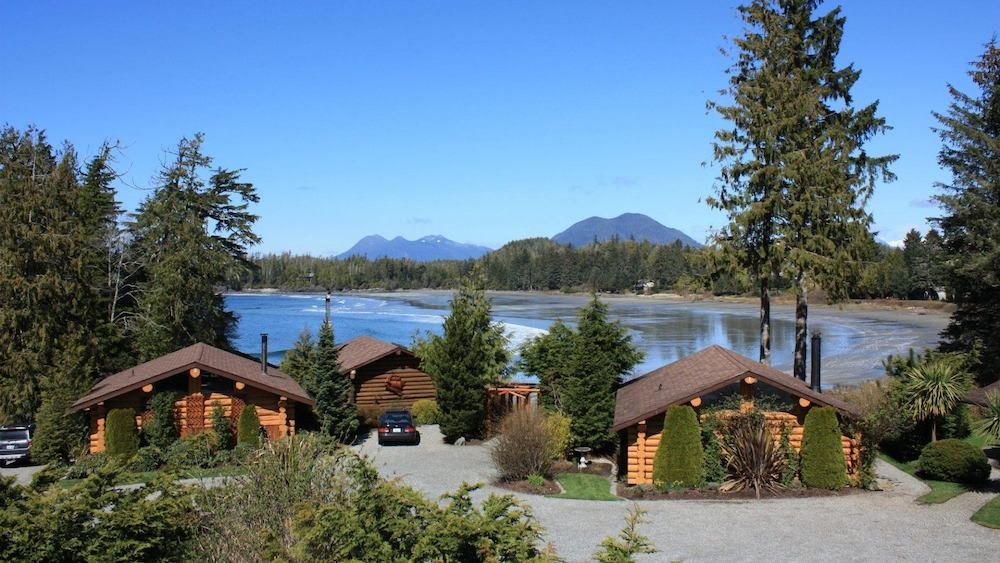
Vancouver Island offers a diverse array of accommodations to suit every traveler’s preferences and budget:
- Hotels and Resorts: From luxurious waterfront resorts to budget-friendly hotels, Vancouver Island boasts a range of accommodations catering to various tastes and preferences. Visitors can choose from boutique hotels, chain properties, and historic lodgings nestled amidst stunning natural surroundings.
- Bed and Breakfasts (B&Bs): For a cozy and personalized experience, consider staying at one of Vancouver Island’s charming bed and breakfasts. These quaint establishments offer comfortable accommodations, homemade breakfasts, and a warm hospitality that makes guests feel right at home.
- Camping and RV Parks: Nature enthusiasts can immerse themselves in the island’s pristine wilderness by camping at one of its many provincial parks, national parks, or private campgrounds. Whether pitching a tent under the stars or parking an RV by the ocean, campers can enjoy scenic surroundings and abundant outdoor recreational opportunities.
- Vacation Rentals: Vacation rentals such as cabins, cottages, and beach houses provide a home-away-from-home experience for families, groups, and solo travelers. These fully-equipped properties offer privacy, flexibility, and the freedom to explore Vancouver Island at your own pace.
Recommended Areas to Stay Based on Preferences and Budget
- Victoria: As the capital city of British Columbia, Victoria offers a vibrant mix of history, culture, and natural beauty. Visitors can explore attractions such as the Royal BC Museum, Butchart Gardens, and the picturesque Inner Harbour. Accommodation options range from luxury hotels and boutique B&Bs in downtown Victoria to seaside resorts along the waterfront.
- Tofino and Ucluelet: Situated on the island’s west coast, Tofino and Ucluelet are renowned for their rugged coastline, pristine beaches, and world-class surfing. Travelers seeking a laid-back beach retreat can choose from beachfront resorts, cozy cabins, and eco-friendly lodgings nestled amidst old-growth forests and Pacific Ocean vistas.
- Nanaimo: Located centrally on Vancouver Island, Nanaimo serves as a gateway to outdoor adventures, cultural attractions, and culinary delights. Visitors can explore the historic Old City Quarter, hike along the Harbourfront Walkway, or embark on kayaking excursions in the surrounding waters. Accommodations in Nanaimo range from budget-friendly motels and cozy B&Bs to waterfront hotels overlooking the Georgia Strait.
- Parksville and Qualicum Beach: Known for their sandy beaches, warm waters, and family-friendly attractions, Parksville and Qualicum Beach are ideal destinations for a relaxing seaside getaway. Accommodation options include beachfront resorts, vacation rentals, and RV parks, offering easy access to outdoor activities such as beachcombing, hiking, and wildlife viewing.
5. Indigenous Culture and History
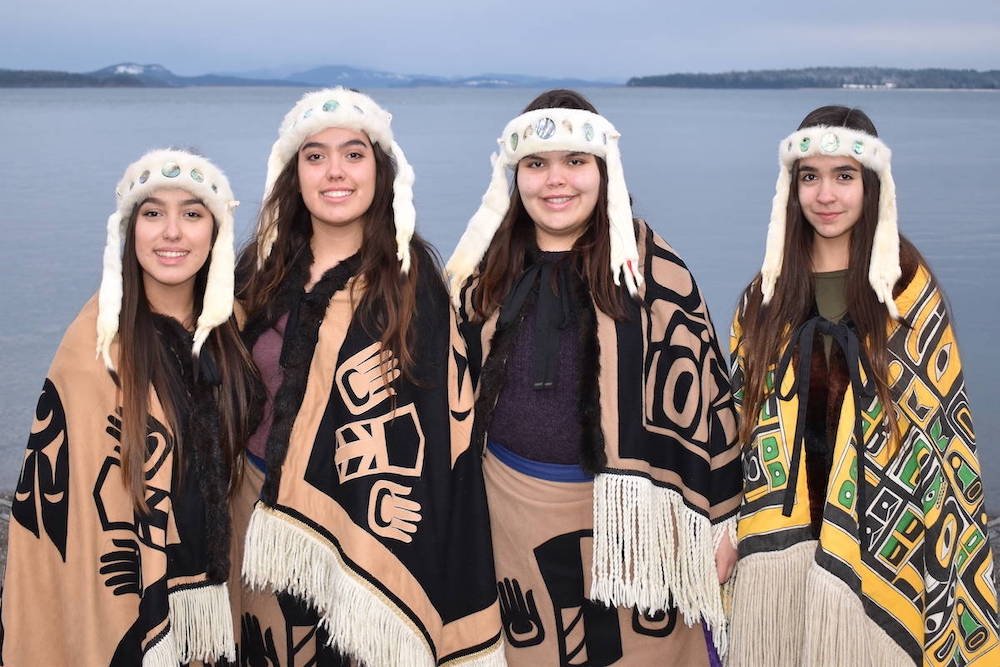
Vancouver Island is home to several Indigenous peoples who have inhabited the region for thousands of years.
The island’s Indigenous communities include the Coast Salish, Nuu-chah-nulth (Nootka), and Kwakwaka’wakw (Kwakiutl) nations, each with their distinct languages, cultures, and traditions.
For millennia, these Indigenous peoples have maintained deep connections to the land, sea, and resources of Vancouver Island, shaping its rich cultural heritage and stewarding its natural environment.
Opportunities for Cultural Experiences and Learning
- Cultural Centers and Museums: Visitors to Vancouver Island have the opportunity to learn about Indigenous history, art, and traditions at cultural centers and museums such as the Royal BC Museum in Victoria and the U’mista Cultural Centre in Alert Bay. These institutions showcase Indigenous artifacts, exhibits, and interactive displays that offer insights into the diverse cultures and histories of the island’s Indigenous peoples.
- Art Galleries and Workshops: Indigenous art plays a prominent role in Vancouver Island’s cultural landscape, with many artists and artisans creating traditional and contemporary works inspired by their ancestral traditions. Travelers can explore Indigenous art galleries, studios, and workshops throughout the island, where they can admire and purchase authentic Indigenous artwork, including carvings, paintings, jewelry, and textiles.
- Cultural Events and Festivals: Vancouver Island hosts a variety of cultural events and festivals that celebrate Indigenous heritage and traditions. Events such as National Indigenous Peoples Day, held annually on June 21st, feature Indigenous music, dance, storytelling, and cuisine, providing opportunities for visitors to engage with Indigenous culture firsthand and participate in community celebrations.
- Cultural Tours and Experiences: Guided tours and cultural experiences offer immersive opportunities to learn about Indigenous history, land stewardship, and traditional practices. Visitors can join Indigenous-led tours, eco-cultural adventures, and cultural immersion programs that explore sacred sites, ancestral territories, and Indigenous ways of life, fostering mutual respect, understanding, and reconciliation.
6. Outdoor Activities and Recreation
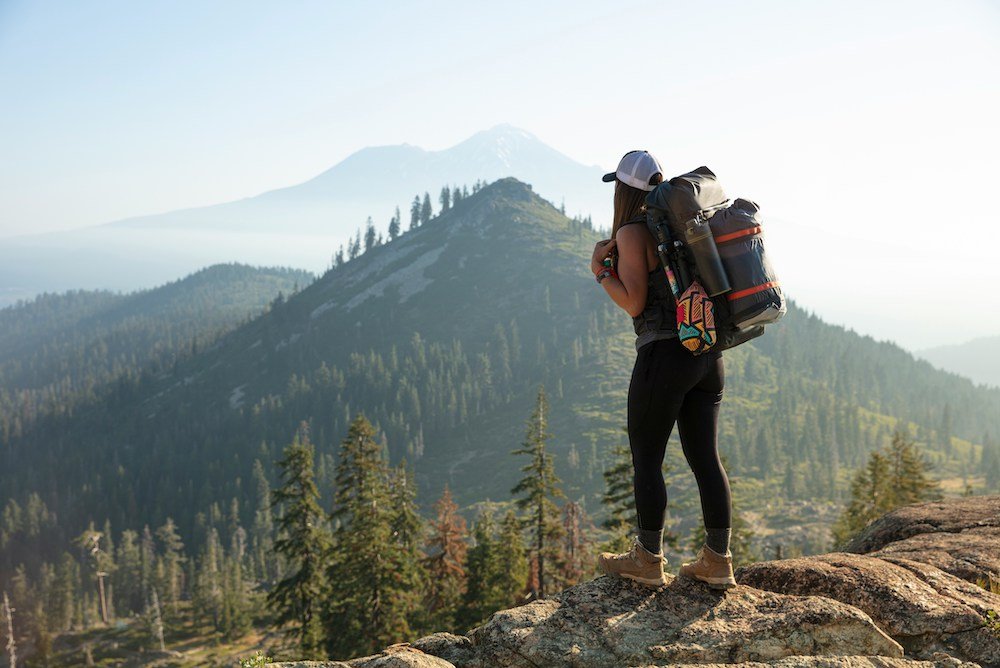
Hiking Trails and Outdoor Adventures
- West Coast Trail: Renowned as one of the world’s premier hiking trails, the West Coast Trail offers a rugged wilderness experience along Vancouver Island’s remote Pacific coastline. This challenging 75-kilometer trek traverses old-growth forests, rocky shorelines, and sandy beaches, with opportunities to spot marine wildlife, explore historic shipwrecks, and soak in natural hot springs along the way.
- Juan de Fuca Marine Trail: Stretching 47 kilometers from China Beach to Botanical Beach, the Juan de Fuca Marine Trail offers a scenic coastal hiking experience with panoramic ocean views, lush rainforests, and tidal pools teeming with marine life. Hikers can explore tide-washed beaches, hidden coves, and towering sea stacks while immersing themselves in the pristine wilderness of Vancouver Island’s southwest coast.
- Strathcona Provincial Park: Located in the heart of Vancouver Island, Strathcona Provincial Park is a nature lover’s paradise, featuring rugged mountain peaks, alpine meadows, and crystal-clear lakes. The park offers a network of hiking trails ranging from leisurely strolls to challenging multi-day treks, including the iconic Della Falls Trail, which leads to Canada’s highest waterfall.
Beaches, Parks, and Wildlife Viewing Opportunities
- Pacific Rim National Park Reserve: Encompassing a diverse coastal landscape of rainforests, beaches, and ocean vistas, Pacific Rim National Park Reserve offers endless opportunities for outdoor exploration and adventure. Visitors can stroll along sandy shores, surf world-class waves, and kayak through scenic fjords while marveling at the abundance of marine and terrestrial wildlife, including whales, sea otters, and bald eagles.
- Botanical Beach Provincial Park: Located on the southwestern tip of Vancouver Island, Botanical Beach Provincial Park is renowned for its rich biodiversity and unique tidal pools. Nature enthusiasts can explore the park’s rugged coastline, home to a stunning array of intertidal marine life, including colorful sea stars, anemones, and crabs. Guided interpretive walks offer insights into the park’s ecological significance and geological formations.
- Tofino and Long Beach: Tofino and nearby Long Beach are iconic destinations for beachcombing, surfing, and storm watching on Vancouver Island’s west coast. With expansive sandy beaches, dramatic seascapes, and old-growth forests, these coastal gems provide endless opportunities for outdoor recreation, wildlife viewing, and cultural experiences, including guided boat tours, whale watching excursions, and Indigenous cultural programs.
7. Food and Dining Scene
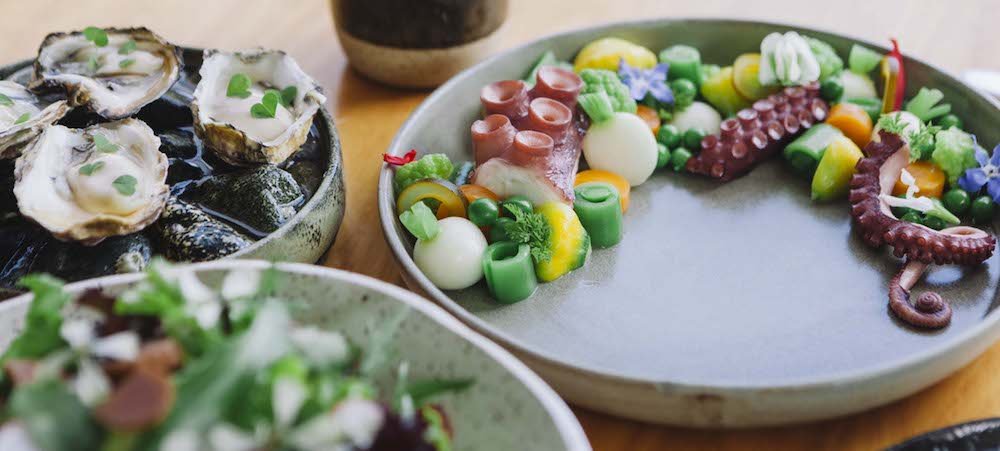
Vancouver Island’s culinary landscape is as diverse as its natural surroundings, offering a tantalizing array of fresh, locally sourced ingredients, innovative chefs, and diverse dining experiences.
From farm-to-table eateries and seafood shacks to fine dining establishments and bustling food markets, the island’s vibrant food scene reflects its rich cultural heritage and commitment to sustainable, seasonal cuisine.
Must-Try Local Dishes and Recommended Restaurants
- Seafood Delights: Vancouver Island’s coastal location makes it a seafood lover’s paradise, with an abundance of fresh, sustainably harvested seafood. Must-try dishes include Pacific salmon, Dungeness crab, spot prawns, and succulent oysters, served in a variety of preparations at seafood restaurants and oyster bars along the island’s coastline.
- Recommended Restaurants: The Fish Store & Oyster Bar in Victoria, Sooke Harbour House in Sooke, and The Pointe Restaurant at the Wickaninnish Inn in Tofino are acclaimed for their seafood-centric menus and oceanfront dining experiences.
- Farm-to-Table Fare: Vancouver Island’s fertile valleys and temperate climate yield an abundance of local produce, meats, and artisanal products, inspiring chefs to create inventive farm-to-table cuisine. Visitors can savor seasonal dishes crafted from fresh, organic ingredients sourced from local farmers’ markets, farm stands, and community-supported agriculture (CSA) programs.
- Recommended Restaurants: The Courtney Room in Victoria, Hudson’s on First in Duncan, and The Wolf in the Fog in Tofino showcase the island’s culinary bounty with creative, farm-fresh menus and warm, welcoming atmospheres.
- Indigenous Inspired Cuisine: Vancouver Island’s Indigenous communities have deep culinary traditions rooted in the land and sea, incorporating wild game, foraged ingredients, and traditional cooking techniques into their cuisine. Travelers can experience Indigenous-inspired dishes and cultural storytelling at Indigenous-owned restaurants, food trucks, and culinary events throughout the island.
- Recommended Restaurants: Kekuli Cafe in Victoria and Uu-athluk Restaurant in Port Alberni offer authentic Indigenous cuisine, featuring traditional dishes such as bannock, smoked salmon, and venison stew, served with a side of Indigenous hospitality and cultural pride.
8. Festivals and Events
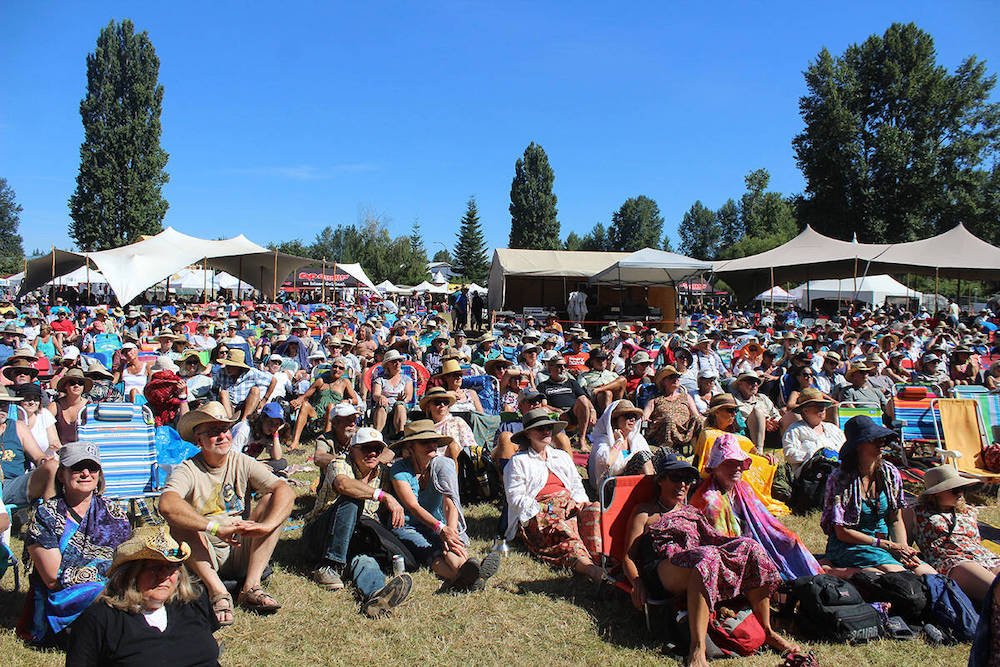
Annual Events and Festivals on Vancouver Island
Vancouver Island hosts a diverse array of annual events and festivals that celebrate its cultural heritage, artistic creativity, and natural beauty.
From music festivals and food fairs to cultural celebrations and outdoor adventures, there’s something for everyone to enjoy throughout the year.
- Victoria International JazzFest: Held in Victoria each summer, the Victoria International JazzFest showcases world-class jazz musicians and emerging artists through live performances, workshops, and jam sessions at various venues across the city.
- Tofino Food and Wine Festival: Food and wine enthusiasts flock to Tofino each June to indulge in gourmet cuisine, fine wines, and culinary experiences inspired by the island’s coastal bounty. The festival features tastings, seminars, and special events highlighting local chefs, wineries, and artisans.
- Pacific Rim Whale Festival: Celebrating the annual migration of gray whales along Vancouver Island’s coast, the Pacific Rim Whale Festival offers a week-long celebration of marine life, conservation, and coastal culture. Visitors can enjoy whale watching tours, educational exhibits, live music, and family-friendly activities in Tofino, Ucluelet, and surrounding communities.
Best Times to Visit for Specific Events
- Summer (June-August): Summer is prime festival season on Vancouver Island, with a plethora of outdoor events and cultural celebrations taking place across the island. From music festivals and food fairs to arts and crafts markets, visitors can immerse themselves in the vibrant energy and creativity of summer festivities.
- Spring (March-May): Spring is an ideal time to visit Vancouver Island for nature lovers and outdoor enthusiasts, with festivals and events celebrating the arrival of spring blooms, migratory birds, and outdoor adventures. Highlights include garden tours, birdwatching festivals, and outdoor recreation expos.
- Fall (September-November): Fall brings harvest festivals, food and wine tastings, and cultural events celebrating the island’s agricultural bounty and culinary heritage. Visitors can sample seasonal delights, explore farmers’ markets, and participate in harvest-themed activities while soaking in the crisp autumn air and vibrant fall colors.
9. Wildlife and Nature Conservation
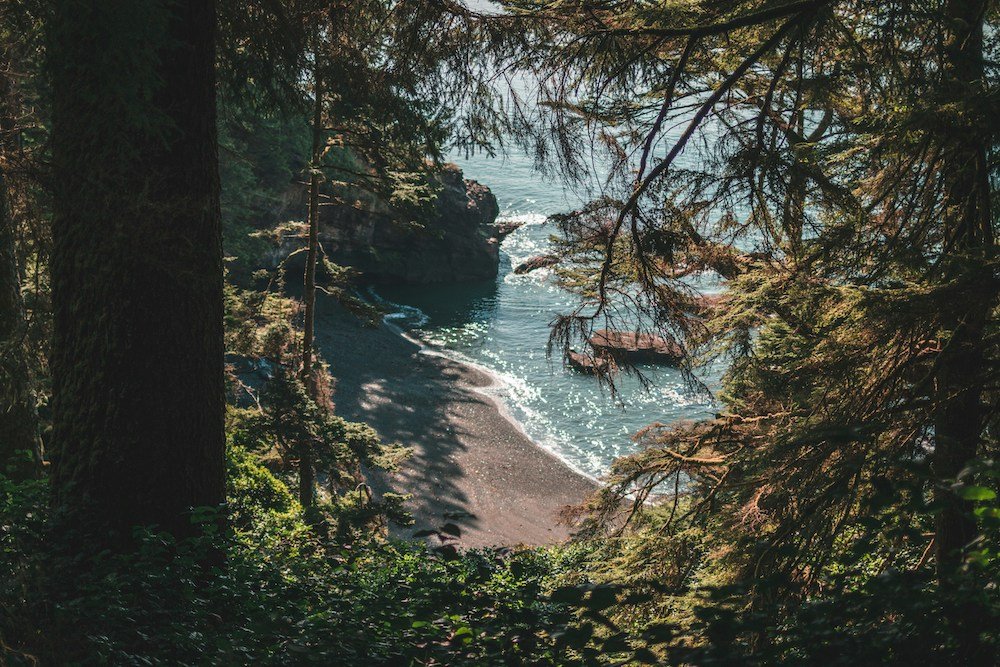
Vancouver Island is renowned for its rich biodiversity and abundance of unique wildlife species, both on land and in the surrounding waters.
From majestic marine mammals to elusive forest dwellers, the island’s diverse ecosystems provide habitat for a fascinating array of flora and fauna.
- Pacific Salmon: Vancouver Island’s rivers and streams are vital spawning grounds for several species of Pacific salmon, including Chinook, coho, and sockeye salmon. Each year, millions of salmon return to these waters to complete their epic journey from ocean to freshwater, providing essential nutrients for other wildlife and supporting local ecosystems.
- Orca Whales: The waters surrounding Vancouver Island are home to one of the world’s most iconic marine mammals, the orca whale. Visitors can embark on whale watching tours from coastal communities such as Victoria, Tofino, and Campbell River to observe these magnificent creatures in their natural habitat and learn about ongoing research and conservation efforts to protect them.
- Black Bears: Vancouver Island is home to a healthy population of black bears, which inhabit forested areas and coastal regions throughout the island. While encounters with bears are relatively common, responsible wildlife viewing practices, such as maintaining a safe distance and avoiding interactions, help ensure the safety of both humans and bears.
Conservation Efforts and Responsible Tourism Practices
- Parks and Protected Areas: Vancouver Island boasts an extensive network of parks, ecological reserves, and protected areas managed by government agencies and conservation organizations. These protected areas serve as important habitats for wildlife, safeguard critical ecosystems, and provide opportunities for outdoor recreation and environmental education.
- Wildlife Conservation Initiatives: Local organizations and conservation groups on Vancouver Island are actively involved in wildlife conservation and habitat restoration efforts, including species monitoring, habitat enhancement projects, and public education campaigns. Visitors can support these initiatives by learning about local conservation issues, participating in volunteer activities, and practicing responsible wildlife viewing and photography.
- Responsible Tourism Practices: Visitors to Vancouver Island can minimize their environmental impact and support conservation efforts by practicing responsible tourism practices, such as staying on designated trails, respecting wildlife habitats, and minimizing waste and pollution. Additionally, supporting eco-friendly tour operators, purchasing sustainable products, and advocating for conservation policies contribute to the long-term sustainability of the island’s natural resources and ecosystems.
10. Local Customs and Etiquette

Vancouver Island, like many regions, has its own set of customs and cultural norms that visitors should be aware of to ensure respectful interactions and positive experiences with locals.
- Respect for Indigenous Culture: Indigenous culture holds significant importance on Vancouver Island. Visitors should show respect for Indigenous customs, traditions, and sacred sites. Seek permission before entering Indigenous lands, participate in cultural activities with reverence, and support Indigenous-owned businesses and initiatives.
- Environmental Stewardship: Vancouver Island residents have a deep connection to the natural environment and place a high value on environmental conservation. Visitors should follow Leave No Trace principles, dispose of waste responsibly, and minimize their ecological footprint while exploring the island’s wilderness areas and parks.
Tips for Respectful Interactions with Locals
- Friendliness and Politeness: Islanders are known for their friendliness and hospitality. Greet locals with a warm smile and polite manners, and engage in friendly conversations to learn more about the island’s culture, history, and way of life.
- Appreciation for Nature: Vancouver Island residents have a profound appreciation for the island’s natural beauty and outdoor recreational opportunities. Respect wildlife habitats, follow trail etiquette, and adhere to park regulations to preserve the island’s pristine wilderness for future generations.
- Support for Local Businesses: Show support for Vancouver Island’s vibrant communities and economy by patronizing locally owned businesses, restaurants, and artisanal shops. Purchase locally sourced products, attend community events, and embrace the island’s unique cultural offerings.
- Tolerance and Diversity: Vancouver Island is home to a diverse population representing various cultural backgrounds and lifestyles. Embrace diversity, show tolerance and respect for different viewpoints, and foster a sense of inclusivity and acceptance within the community.
11. Safety Tips and Precautions
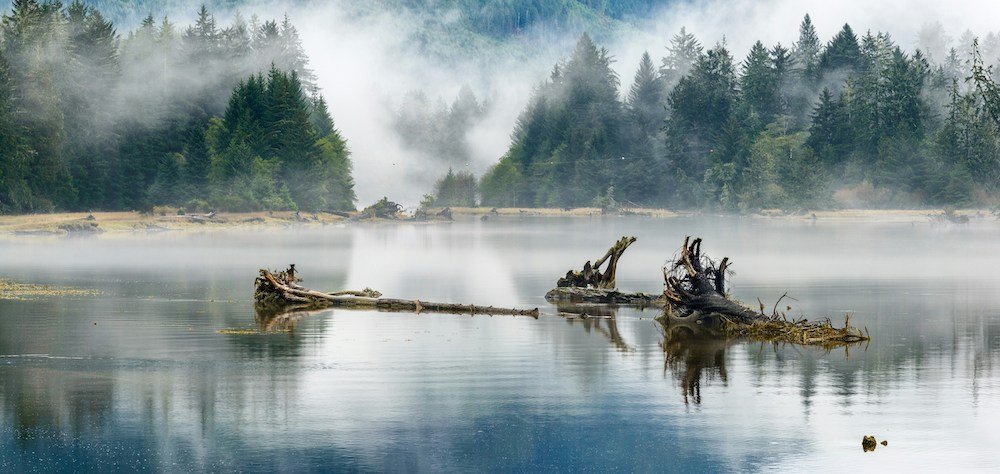
General Safety Guidelines for Visitors
- Outdoor Safety: When exploring Vancouver Island’s rugged terrain and coastal areas, always stay on designated trails, follow signage and park regulations, and be aware of potential hazards such as slippery rocks, steep cliffs, and changing tides. Carry adequate supplies, including water, food, first aid kit, and appropriate clothing for variable weather conditions.
- Wildlife Encounters: While wildlife encounters are a highlight of visiting Vancouver Island, it’s essential to observe animals from a safe distance and avoid feeding or approaching them. Be especially cautious around bears, cougars, and other potentially dangerous wildlife. Store food securely and make noise while hiking to avoid surprising wildlife.
- Water Safety: Whether swimming, kayaking, or boating, always exercise caution around water bodies on Vancouver Island. Wear a life jacket when boating or participating in water sports, and be aware of strong currents, undertows, and cold water temperatures, especially in the Pacific Ocean.
- Road Safety: When driving on Vancouver Island, obey traffic laws, and drive defensively, particularly on winding coastal roads and mountainous terrain. Be mindful of wildlife crossings, narrow bridges, and adverse weather conditions, which can affect road visibility and traction.
Emergency Contacts and Resources
- Emergency Services: In case of emergencies, dial 911 for immediate assistance from police, fire, or medical services. Be prepared to provide your location, nature of the emergency, and any relevant details to the dispatcher.
- Search and Rescue: Vancouver Island’s rugged wilderness and remote areas may require assistance from search and rescue teams in emergencies. Contact local search and rescue organizations, such as BC Search and Rescue Association (BCSARA), for assistance with wilderness rescues and emergencies in outdoor recreational areas.
- Healthcare Facilities: Familiarize yourself with the locations of hospitals, urgent care centers, and medical clinics on Vancouver Island, especially if traveling to remote or rural areas. Carry essential medications, medical supplies, and travel insurance coverage for unforeseen medical emergencies.
- Weather and Conditions: Stay informed about current weather forecasts, trail conditions, and potential hazards before embarking on outdoor activities. Monitor local news, weather advisories, and park websites for updates on weather-related closures and safety alerts.
12. Budgeting for a Trip to Vancouver Island

Average Costs of Living and Traveling on Vancouver Island
- Accommodation: The cost of accommodation on Vancouver Island varies depending on factors such as location, amenities, and time of year. Budget travelers can find affordable options such as hostels, campgrounds, and budget hotels, while luxury resorts and boutique accommodations cater to higher-end budgets.
- Transportation: Traveling to and around Vancouver Island can be relatively affordable, with options such as public transit, ferries, and rental cars available to visitors. Budget-conscious travelers can save money by booking flights and ferry tickets in advance, carpooling, or utilizing rideshare services.
- Food and Dining: Dining out on Vancouver Island offers a range of options to suit every budget, from casual eateries and food trucks to upscale restaurants and farm-to-table establishments. Visitors can save money by cooking meals at accommodations with kitchen facilities, shopping at local markets, and exploring affordable dining options in smaller towns and communities.
- Activities and Attractions: Vancouver Island offers a wealth of free and low-cost activities and attractions for budget-conscious travelers, including hiking trails, beaches, parks, and cultural sites. Many museums, galleries, and cultural events offer discounted admission rates or free entry on select days.
Tips for Budget-Conscious Travelers
- Plan and Research: Research accommodation, transportation, and activities in advance to identify budget-friendly options and take advantage of discounts, deals, and promotions.
- Travel Off-Peak: Traveling during shoulder seasons or off-peak times can result in lower prices for accommodations, flights, and attractions. Avoiding peak tourist seasons can also lead to fewer crowds and a more authentic travel experience.
- Use Public Transit: Vancouver Island’s public transit system, including buses and ferries, offers affordable and convenient options for getting around. Consider purchasing day passes or multi-ride tickets to save money on transportation costs.
- Cook and Shop Locally: Save money on dining expenses by cooking meals at accommodations or picnicking in parks and beaches. Explore local markets, bakeries, and grocery stores to purchase fresh, affordable ingredients and support local producers and artisans.
- Take Advantage of Free Activities: Vancouver Island is home to numerous free and low-cost activities, including hiking, beachcombing, wildlife viewing, and cultural events. Take advantage of these opportunities to explore the island’s natural beauty and cultural heritage without breaking the bank.
Conclusion
Visiting Vancouver Island offers travelers a remarkable journey into the heart of British Columbia’s natural splendor, cultural richness, and outdoor adventures.
Before embarking on your Vancouver Island adventure, it’s essential to be well-informed and prepared to make the most of your experience.
From its breathtaking landscapes and diverse wildlife to its vibrant communities and rich cultural heritage, Vancouver Island offers a tapestry of experiences waiting to be discovered.
Understanding key facts about the island’s geography, climate, transportation options, and local customs can enhance your journey and ensure a memorable and fulfilling travel experience.
As you explore Vancouver Island, remember to tread lightly, respect local customs and traditions, and embrace the spirit of responsible tourism.
Whether hiking through ancient rainforests, relaxing on pristine beaches, or immersing yourself in Indigenous culture, cherish and preserve the island’s natural and cultural treasures for future generations to enjoy.
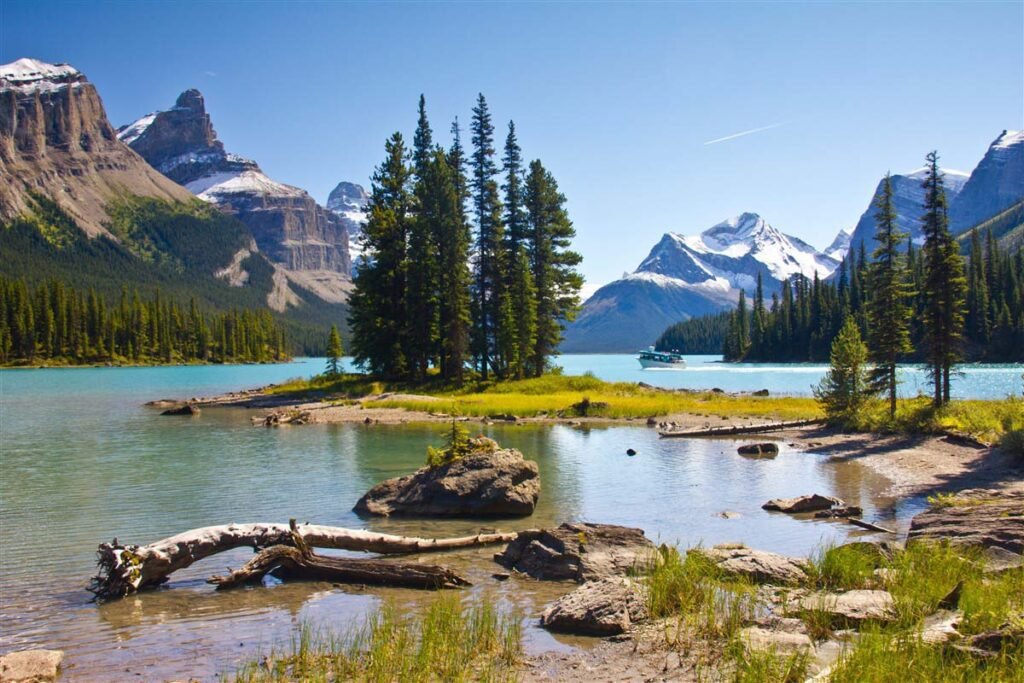
FAQ’s About Vancouver Island:
What is so special about Vancouver Island?
Vancouver Island is renowned for its stunning natural beauty, diverse ecosystems, and vibrant cultural scene.
From towering old-growth forests and rugged coastline to charming towns and vibrant cities, the island offers a wealth of outdoor adventures, cultural experiences, and opportunities for relaxation and rejuvenation.
Is Vancouver Island worth seeing?
Absolutely! Vancouver Island offers a unique blend of outdoor activities, cultural attractions, and scenic landscapes that make it a must-see destination for travelers.
Whether you’re exploring the rugged west coast, strolling through picturesque gardens in Victoria, or sampling fresh seafood in Tofino, the island promises unforgettable experiences for visitors of all interests.
Can you drive from Vancouver to Vancouver Island?
You cannot drive directly from Vancouver to Vancouver Island, as the island is separated from the mainland by the Strait of Georgia.
However, you can take a ferry from the Tsawwassen terminal near Vancouver to various destinations on Vancouver Island, including Swartz Bay (near Victoria), Nanaimo, and Duke Point.
Does anyone live on Vancouver Island?
Yes, Vancouver Island is home to a diverse population of residents who live in cities, towns, and rural communities across the island.
Victoria, the capital city of British Columbia, is the largest city on the island, followed by Nanaimo, Courtenay, and Campbell River.
What is the best month to visit Vancouver Island?
The best month to visit Vancouver Island depends on your preferences and interests.
Summer months (June to August) offer warm weather, outdoor festivals, and opportunities for beach activities.
Spring (March to May) and fall (September to November) are ideal for hiking, wildlife viewing, and exploring gardens and parks. Winter (December to February) can be rainy but offers fewer crowds and opportunities for storm watching and whale watching.
How long do you need to see Vancouver Island?
The amount of time needed to see Vancouver Island depends on your travel itinerary and interests.
While it’s possible to explore some of the island’s highlights in a few days, ideally, you’ll want at least a week to fully appreciate its diverse landscapes, attractions, and communities.
How long is the boat ride from Vancouver to Vancouver Island?
The boat ride from Vancouver to Vancouver Island varies depending on the route and destination.
The ferry ride from the Tsawwassen terminal near Vancouver to Swartz Bay terminal near Victoria takes approximately 1.5 to 2 hours, while the ferry ride from Horseshoe Bay terminal in West Vancouver to Nanaimo takes about 1.5 hours.
Do you need a car to get around Vancouver Island?
Having a car can offer convenience and flexibility for exploring Vancouver Island, especially if you plan to visit remote areas or explore multiple destinations.
However, public transit options, including buses and ferries, are available in urban centers and can be used to access popular attractions and communities.
Can you go to Vancouver Island without a car?
Yes, it is possible to visit Vancouver Island without a car. Public transit options, including buses, ferries, and taxis, are available in urban centers and can be used to explore the island’s attractions and communities.
Additionally, guided tours, bike rentals, and walking tours offer alternative ways to experience Vancouver Island’s beauty and culture without a car.





